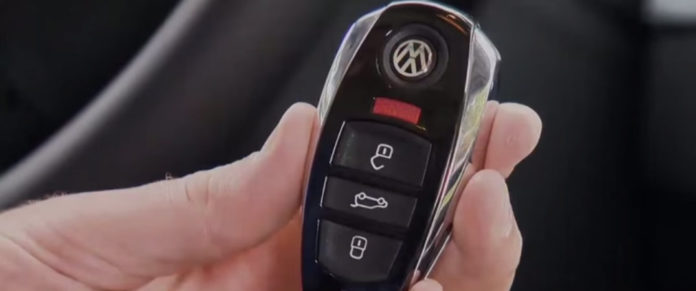
Keyless vehicle entry is far more secure than using mechanical keys, correct? Not according to a new study, which found that most keyless entry systems can be hacked rather easily using commonly available equipment. This information came courtesy of a study conducted by German automobile club ADAC and reported by the British Consumers’ Association’s Which? publication. The study examined 237 models of cars that use an electronic rather than mechanical key, and discovered thieves could unlock 230 of them without much difficulty.
To do so, car thieves use “relay boxes” to fool the vehicle into thinking the electronic key is very close by, when in reality the boxes are relaying the radio signal. Experts say it’s simply a matter of identifying and redirecting communication between the fob and the vehicle’s computer. They process is only effective on vehicles that have a keyless remote and push-button start. It involves amplifying the signal from a fob stored inside the vehicle owner’s home.
Last year, similar results were achieved by the National Insurance Crime Bureau in the U.S. The bureau tested 35 different makes and models of cars made between 2010 and 2017. The relay attack device testers used was able to unlock and start eighteen – more than half — of the cars tested.
“In the last couple of years, we began to see more evidence of not only breaking in, but people able to start the car and drive off,” said Roger Morris with the National Insurance Crime Bureau. “You used to be able to hotwire cars, but that doesn’t happen anymore with today’s technology.”
Which? reported that the keyless versions of top-selling vehicles such as the Ford Fiesta, Volkswagen Golf, Nissan Qashqai and Ford Focus were all vulnerable to hacking.
Experts have reported that owners of vehicles that use keyless systems can keep their vehicles more secure by storing the fob in a blocking wallet made of metal, which blocks the radio frequencies used by these systems. They also recommend that the fobs be stored in the center of a home, rather than close to windows or walls.












